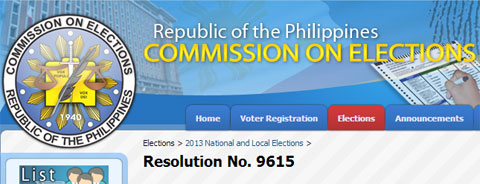TRANSPARENCY TRUE OR FALSE? Real or reel?
Is the Aquino administration fully committed in theory as much as in practice in fulfilling its promises to achieve transparency, accountability, and good governance? But what about its failure to lead the passage of the Freedom of Information Act in the 15th Congress?
This March, the answers will be known in part as the Philippines comes under review by a team from the Independent Reporting Mechanism (IRM) of the Open Government Partnership (OGP), a network of 57 nations (governments and civil society) that was initiated by US President Barack Obama in 2010.
In December 2011, the Aquino government submitted the Philippines’ OGP Action Plan titled “Institutionalizing People Power in Governance To Ensure Direct, Immediate and Substantial Benefits to the Poor.” It pledged to implement most of its program commitments until December 2012.
Yet it seems like the govenrment has some catching up to do in regard to the pace and progress of promises it has pledged to fulfill under the OGP framework.
For one, the government — represented in the OGP by Budget and Management Secretary Florencio “Butch” Abad — has not yet convened a steering committee of civil society leaders, as it had promised to do for the OGP. Abad sits in the nine-person OGP Steering Committee of government leaders.
But thus far, Abad has only convened in early 2012 an interim steering committee of three CSO representatives from groups familiar to or working closely with the DBM. The interim committee was expected to convene an assembly of CSO leaders who were supposed to elect the members of the regular CSO Steering Committee but this has not happened as of this writing.
In its OGP Action Plan, the government assured that it will “Organize a Philippine Open Governance Partnership” throughout the OGP process. It stated: “During the preparatory phase of this Action Plan, the Government will organize a Philippine Open Governance Partnership that will be tapped in plotting open government reforms in the medium-term, in monitoring performance and in surfacing broader areas where interventions need to be escalated. Government will engage a broad spectrum of national and local CSOs, business groups, academe and other stakeholders; as well as reach out to the Legislature, the Judiciary, Constitutional Bodies and Local Governments for them to take part in open government endeavors.”
Apart from the Philippines, seven other countries will be assessed by the IRM’s panels this year: Brazil, Indonesia, Mexico, Norway, Tanzania, United Kingdom, and United States.
The OGP’s Independent Reporting Mechanism is “a multilateral initiative that aims to secure concrete commitments from governments to promote transparency, empower citizens, fight corruption, and harness new technologies to strengthen governance.”
To become and remain eligible as OGP members, participating countries “must embrace a high-level Open Government Declaration, deliver a country action plan developed with public consultation; and commit to independent reporting on their progress going forward through the… IRM.”
The OGP said, “the IRM is a key means by which all stakeholders can track progress and OGP’s impact within participating countries. By tracking progress, it promotes strong accountability between member governments and citizens.”
“The IRM works primarily through annual independent assessment reports for each OGP participating government. Each report will assess country on development and implementation of action plans, progress in fulfilling open government principles, and will develop technical recommendations,” the OGP said.
A panel of “well-respected individuals, the International Experts Panel (IEP) directly oversees the IRM. The independent reports “will assess implementation of the commitments adopted by OGP participating governments in their country action plans.. with emphasis on development and implementation of action plans,” including:
* “The extent to which the action plan and its commitments reflect, in a country-specific way, the OGP values of transparency, accountability, and civic participation, as articulated in the OGP Declaration of Principles and the Articles of Governance.
* “Wherever relevant, IRM reports may reflect actions or measures relevant to the country’s participation in OGP that were not originally reflected in the action plan.
* “The degree to which OGP governments are following OGP process requirements and guidance in the development and implementation of their plans, in keeping with the (OGP) Articles of Governance.
* “Progress made on the articulation and implementation of each commitment and the plan as a whole, according to milestones laid out by the government in its action plan.
* “Technical recommendations regarding how countries can improve implementation of each commitment and the plan as a whole, as well as how to better realize the values and principles of OGP, with specific reference to the OGP Articles of Governance and the OGP Declaration of Principles.”


